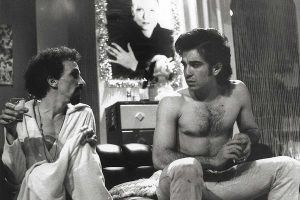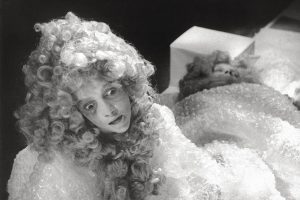Max Ferrá, the longtime artistic director of INTAR Hispanic American Arts Center in New York, imbued in those around him—and his charisma was such that there were always people around him—a fierce sense of passion for beauty. Beauty that shook you out of your received assumptions. Be the work tragic or comic, his concern was with beauty as a political act, as resistance, and also as radically individual expression. He aspired to fully live this passion, and succeeded to a remarkable degree. In a real sense, the play or performance in question mattered less than one’s passionate commitment to making a piece of theatre with fervid, vital life—commitment to using the banal stuff of life, our bodies, voices, feelings, fears, and hopes in service of making something greater, more fully lived, more acutely experienced, than could be achieved in everyday life. His ideals were such that he had no patience for theatre that did not reach this level, and even less for anyone he perceived as not aspiring toward this goal.

Max was a warm, contradictory, funny, infuriating, sensitive, harsh, loyal, and unpredictable man. I met him when I was just out of college, in my first few months in New York. I was full of an inarticulate ambition, but otherwise directionless. Max saw something in me, probably nothing more than a propensity for hard work, and, as he had for many others, he made a space for me at INTAR. It was an informal apprenticeship of sorts, and over the years I did just about every job there was to do: sweep the stage, gofer, load-ins, light board op, assistant stage manager, acting in readings, workshops and eventually productions, curate, direct. He was hard on me, pushing, sometimes to the point of being mean, but at the same time consistently offering that next opportunity, the subsequent challenge. We argued ferociously, as only two Cubans, members of the same fractious family, could. He had no reservations about telling me when he thought I had failed. He was amused by my presumption, by what he called my “pretentiousness” (he was right). But he was truly joyful and proud when I was successful in making something of real beauty, and he celebrated that without reserve.

At INTAR Max created a space that was home to generations of the finest Latinx writers and artists in the U.S., as well as producing great work by writers from abroad. A (very) partial list of those that I had the good fortune of experiencing in my time at INTAR include Migdalia Cruz, José Rivera, Caridad Svich, Oscar Colón, Eduardo Machado, Carmelita Tropicana, Nilo Cruz, Culture Clash, Milcha Sanchez Scott, John Leguizamo, John Jesurun, and, of course, the great Maria Irene Fornés. Labyrinth Theater Company got their start at INTAR. Some of the productions I saw there were brilliant, others failed spectacularly; they were rarely if ever boring.
As a director, Max had exquisite taste and a brilliant sense of composition. He never seemed happier, more alive, than when in rehearsal. As artistic director he created one of the most important Latino cultural institutions and ran it for more than 30 years. And he left behind a legacy still going strong under the guidance of his current successor, Louis Moreno. It would be hard to overstate the measure of his accomplishment. And for me, and many others, he was a great friend and influential mentor. I will always be grateful to have know him, and will miss him. Especially when I see or make something I suspect he might have found beautiful.
Michael John Garcés is artistic director of Cornerstone Theater Company.

